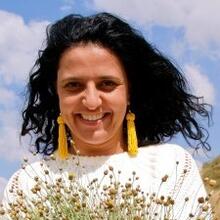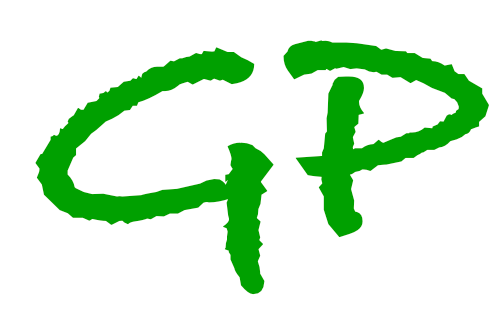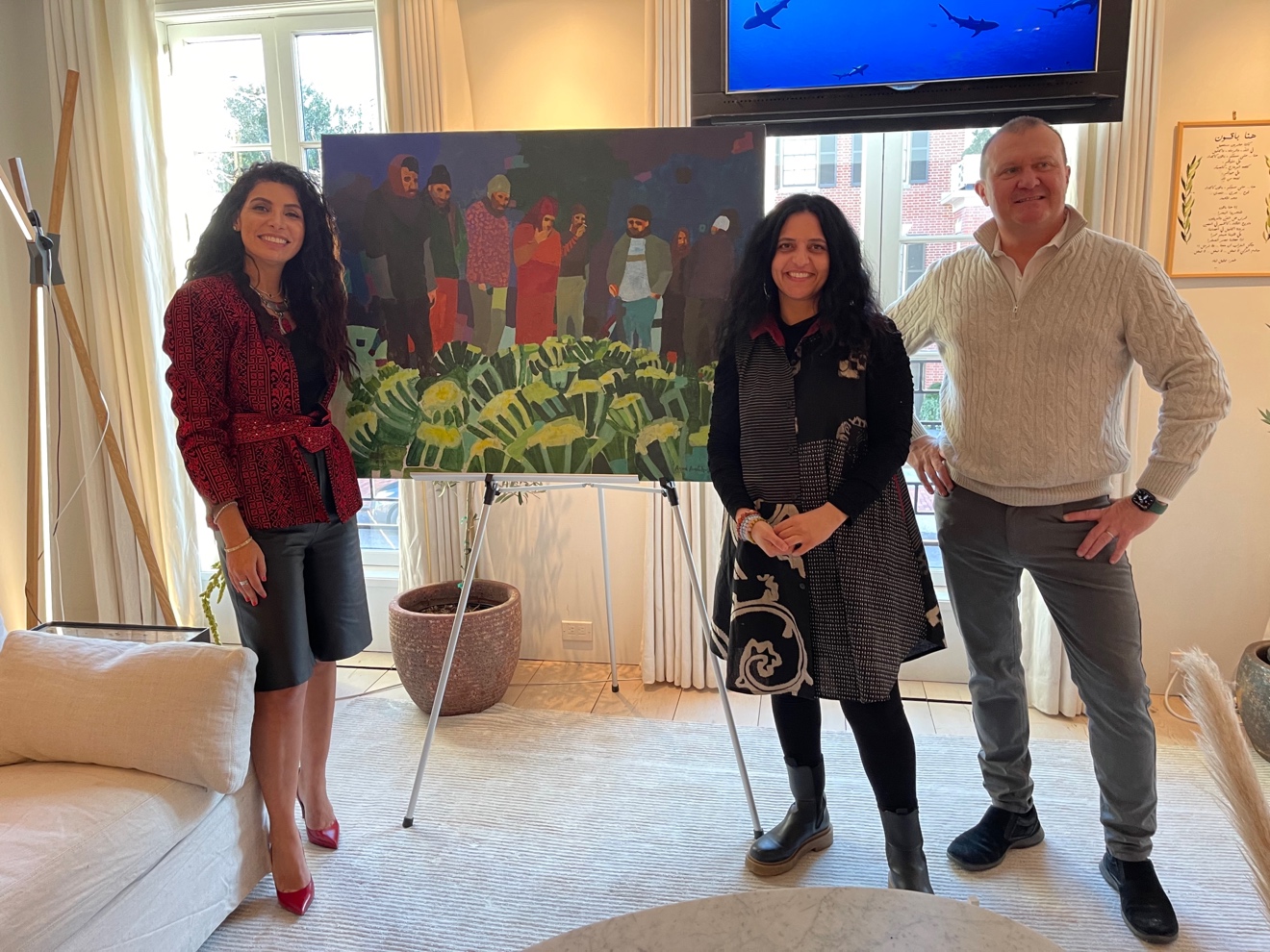Telling Our Stories
We launched our 2022 program of events with a dynamic speaker who inspires by the example she sets and the creativity she brings to her work. Vivien Sansour, an anthropologist by training and a farmer by choice, wears many hats—film producer, author, culinary historian, Harvard fellow—but she is best known as the founder of the Palestine Heirloom Seed Library, an archive of seeds native to the soil and climate of Palestine. In late February, Growing Palestine invited about 50 guests to a zahra baladiyya luncheon to meet and be inspired by her, have a chance to ask her questions, and share a meal together.

The afternoon event, graciously hosted by board member Samar Hussein Langhorne and her husband Will, was limited in size so that seats could be set apart, to conform to Covid protocols. The event was also live streamed on Facebook and Instagram. It started with a short video, created by board member Samir Salem, which gave an excellent summary of resistance farming.
Every Seed Has a Story
Sansour is a masterful storyteller, and she can weave a compelling story from details many of us might overlook. She started with a seed and explained how it contains a world within its shell. She passed out seeds to the audience so that they get a tactile sense of it. Within its shell, a seed carries a nation’s DNA. It is the outcome of a process followed by our ancestors who, with patience and through trial and error, developed fruits and vegetables that were suitable for the terrain, required little water, resisted diseases, and were pleasing to the local palate.
The Power of Seeds
People in the Arab world are frequently told or made to feel that they have nothing to offer the world, that important developments take place elsewhere. The seeds expose the falseness of that storyline, Sansour explained. Like scientists, our ancestors observed what worked and what didn’t and had the imagination and wisdom to develop foodstuffs that were organically linked to the environment. That ancestral knowledge is vital to our well-being. It is field-tested and has stood the test of time, which makes it valid and valuable, not to be discarded by approaches that are presented as more technologically advanced or that yield faster results.
That ancestral knowledge holds lessons beyond the food supply, Sansour maintained. When you have a deep understanding of your identity and the heritage that created you, such knowledge changes how you move in the world, and it is more difficult for others to dominate you.
The Things We Celebrate
Arabs celebrate things that might strike others as unusual. In the Gulf Arab countries, camel beauty pageants are taken very seriously. In Palestine, an annual Lettuce Festival, launched in 1994 in the village of Artas in the Bethlehem area, attracts crowds that enjoy song and dance performances. Palestinians also celebrate cauliflower in auction markets.
Descriptions of cauliflower auctions sound like beauty pageants, and criteria pushing the bids upward include size and yellow color and, presumably, overall appeal—yes, its beauty. A little known factoid about indigenous cauliflower is that it requires nine months to ripen. Growing cauliflower, then, is not for those looking for quick time to market; it requires patience, and farmers in previous times were abundantly patient. They knew the result would be worth the wait.

The health benefits of cauliflower are worth looking into: a quick Google search shows that it is heart friendly; it is an antioxidant, reducing the risk of cancer; it is high in fiber; it reduces inflammation; it supports gut health; and it has nutrients that are good for mood, memory, and recall. All that goodness in a single vegetable!
Spoons Tell Stories
Humans are storytellers and meaning makers, and Sansour tells stories and derive meaning with mesmerizing skill. She described her experience as a participant in an art exhibit in Italy; her contribution was an art installation depicting the Last Supper and consisted of a large table, beautifully laid with pottery and seeds—and an antique spoon where each place setting should be.
As intended, the spoons raised questions, and visitors to the exhibit asked her: Why are only spoons being used? It turns out to be just the right question, because it provides an opportunity to tell a story of creativity and defiance, when six prisoners in an Israeli prison broke out of captivity using spoons they had available to create an opening in the prison walls. They must have known that they would not remain free for long, that their escape would trigger a national manhunt. But they wanted to prove to their captors and to the world that the desire for freedom cannot be killed. People will find a way.

Art exhibit depicting The Last Supper in Italy.
Auction
Extolling the virtue of cauliflower led us to the final stretch of the event: the live auction. We were fortunate to have a gorgeous painting of Palestinians at a cauliflower celebration and auction by Ayed Arafeh of Dheisheh Camp (he is the same artist who created the iconic poster of Rachel Corrie). The art, commissioned by the Palestine Seed Library, depicted men at a cauliflower auction who are deep in discussion. A lively bidding war among the live and virtual participants ensured that a respectable sum could be given to the heirloom seed library in Palestine.
Time to Eat
No GP event would be complete without a meal, and this event included a late lunch of delicious maqloobeh made with fried cauliflower, with imshat (slabs of cauliflower breaded and deep fried) as a side. The scrumptious meal was followed by equally scrumptious malateet for dessert.

